“So then I learned, at least in part, to only say things that made me feel like I was together, and that’s part of that coming-together: you can feel that, physically. If you say something deceitful, you shrink and you cower from it. It makes you embarrassed, and it makes you weak. You can feel the weakness. It’s like: Stop saying things that make you weak, if you don’t want to be weak, then. If you want to be strong, stop saying things that make you feel weak. Try it! Try it; see what happens. You can test this out. In a year, things will be way different for you. In five years, you won’t even be the same person. God only knows what’ll happen in a decade.”
[Source: audio, transcript]❋
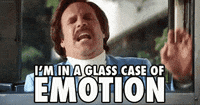
We think of deception, lying, as a moral choice to be made. Rather, honesty is the moral choice. Dishonesty is the immoral choice.
And we’re right.
But what we don’t think about is how often we make the immoral choice—dishonesty—without realizing it.
There are a few principles, or ideas, that I strive to live by daily. They have changed the way I view everything, the priorities I have, the decisions I make. As a result, they have changed my life.
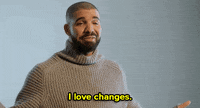
One of them is this:
A commitment to complete honesty in word and action
Simple? Should be. Sounds like it. But I’ve discovered that the most difficult honesty is being honest with myself.
Who am I? What do I want? What am I satisfied with? What am I not satisfied with? What works for me? What doesn’t? How does each experience affect me? What values do I really care about? How do I want to spend my time? What kind of people do I want to be around? What strengthens me? What makes me feel weak? What feels right and whole and “from the core”? What doesn’t? What am I allowing in my life for someone else’s sake? What am I doing out of guilt or fear or obligation? What lights me up with joy? What doesn’t?

I’m all for introspection, but introspection alone doesn’t lead to honesty.
I can spend a lot of time in my own head thinking and reflecting, and still avoid real honesty. Surface-level emotions and experiences can keep me busy for a long time. They’re real, but they’re not the whole story. If I’m ignoring a big part of my own story, how honest can I be?
I’ve kept a journal since I was… 10, maybe? When I can’t figure shit out, I write about it. (This is the primary motivation behind the work I do: I’m still just trying to figure shit out.) I set goals and track habits and make lists. But sometimes I’m tracking and logging and listing the wrong things: the should-do things, the must-do things, the obligatory things, the ego-driven things, the socially-approved things, the role-appropriate things.

How successful am I if I build a habit or achieve a goal that’s not something I really care about?
Not successful at all.
Defining our values is difficult. Values—like honesty, commitment, love, kindness, freedom, fulfillment—are loaded with meaning. It’s tough for us to admit we don’t value some of the things we think we’re supposed to value. So we try to keep up with all of them, juggling as much as we can. The result is that we live by none of them, have a lot of internal conflict, and keep ourselves too busy and stressed to notice what’s happening.
No good.
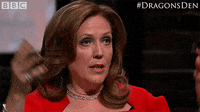
Here’s a better idea: notice how things make us feel. The effect each choice or activity or interaction has on us, in the moment. That’s a path toward finding out what we really value.
“Those questions that we never asked ourselves kept bothering me, so I started to question everything. What made me happy? What made a day worthwhile? What made life worthwhile? I really started to track, compile, list and organize what had an impact on me and allowed me to appreciate the moment. …as long as it was deep and real I took note and tried to embrace it. It was a work in progress but I quickly learned a lot. What made me tick became more clear.”
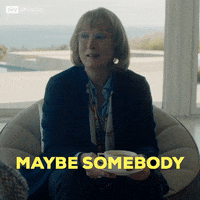
I just hired a business coach. My notes from our first call look like they’re about two different people. Essentially, they are:
Functional Annie, who gets shit done and makes progress and has ready answers and can describe her services and ideal clients and unique value proposition and five-year goals.
Then there’s Honest Annie, who has no fucking clue most of the time, is all over the place, and is mostly unaware of the stories she’s telling herself.
And now let’s pause while I have an existential identity crisis because I’m not only writing about myself in third person, I’m writing about myself as two people. Send Help.
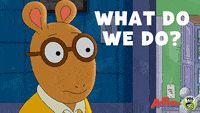
I’ve been trying to set a few quarterly goals because 1) I like goals and 2) I like goals.
Three goals. Three quarterly goals. Three quarterly business goals. Shouldn’t be difficult.
I’ve thought of about 127 different options. I hate them all.
Why?
Because there’s a conflict.

Functional Annie wants to keep the boat afloat, no matter what. Chaos is pain.
Honest Annie wants to figure out what she really wants to achieve. Wants to venture to that field out beyond ideas of rightdoing and wrongdoing. Wants to ask and answer the more important questions. Wants to notice what matters, not what should matter. Wants to be still long enough to hear every part of her own story and tell it true, tell it whole.
Hmmmmmm.
Tell it true, tell it whole.
No matter where it leads. No matter what it means. No matter who it might displease. Not matter what chaos it might generate. No matter what.
Tell it true, tell it whole.
Then live it true, live it whole.
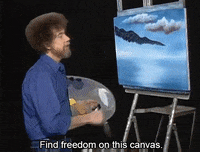
Links!
Don’t start with goals; start with clarity: If I had a penny for every time I’ve written something and then a few days later I’m like “OH MY GAAAAAH I WAS JUST WRITING ABOUT THIS AND NOW I AM DOING THE TOTAL OPPOSITE THING OF WHAT I SAID TO DO,” I’d have like, a dollar.
How to build a content dashboard: Time to balance out all these feelings with some solid freelancy contenty content. Wheeeee!
What do we need to live?: A tiny shopping cart, first. Then an assortment of fine-point pens, fast wifi, and coffee.
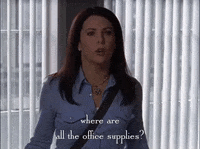
❋I switched to “Source” with a link instead of the name/title because of something I noticed in myself: when I recognize the source of a quote, I validate or invalidate what it says based on my opinion of the person/organization/etc. Now that’s not entirely bad. If information comes from an unreliable news site, for example, it’s a good idea not to trust it.
But what about ideas? Concepts? Principles? Feelings? Opinions? These aren’t factual items to confirm with data and research, but insights and lived experiences. How many insights have I dismissed because of my prejudice against a source? Hmmm. When we dismiss the experiences of others—and the lessons they’ve learned from them—because we don’t agree with them on something else, we miss out. We miss the chance to learn. We miss the chance to gain a broader perspective. We miss the chance to understand, to connect.
I don’t want to miss those chances. I don’t want you to miss them, either.

